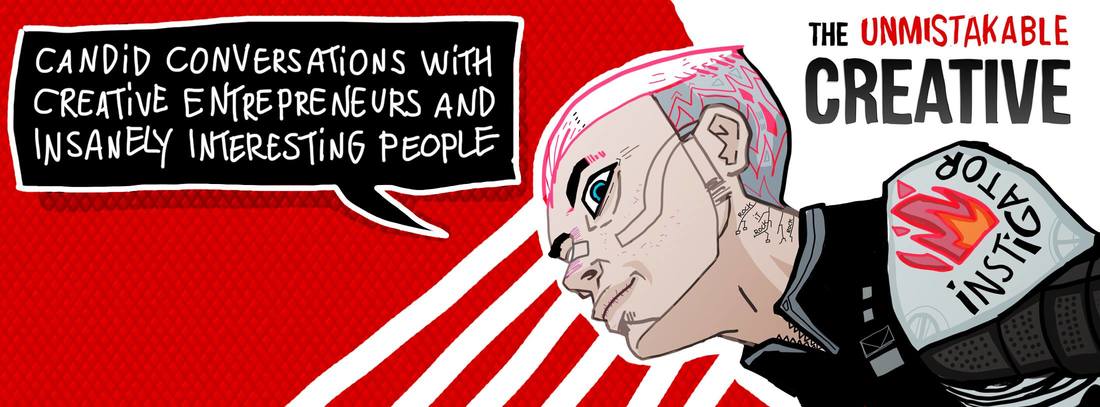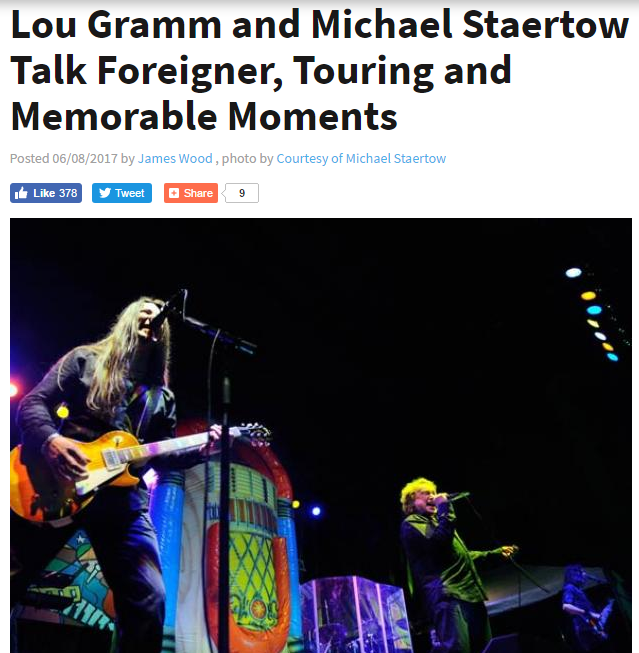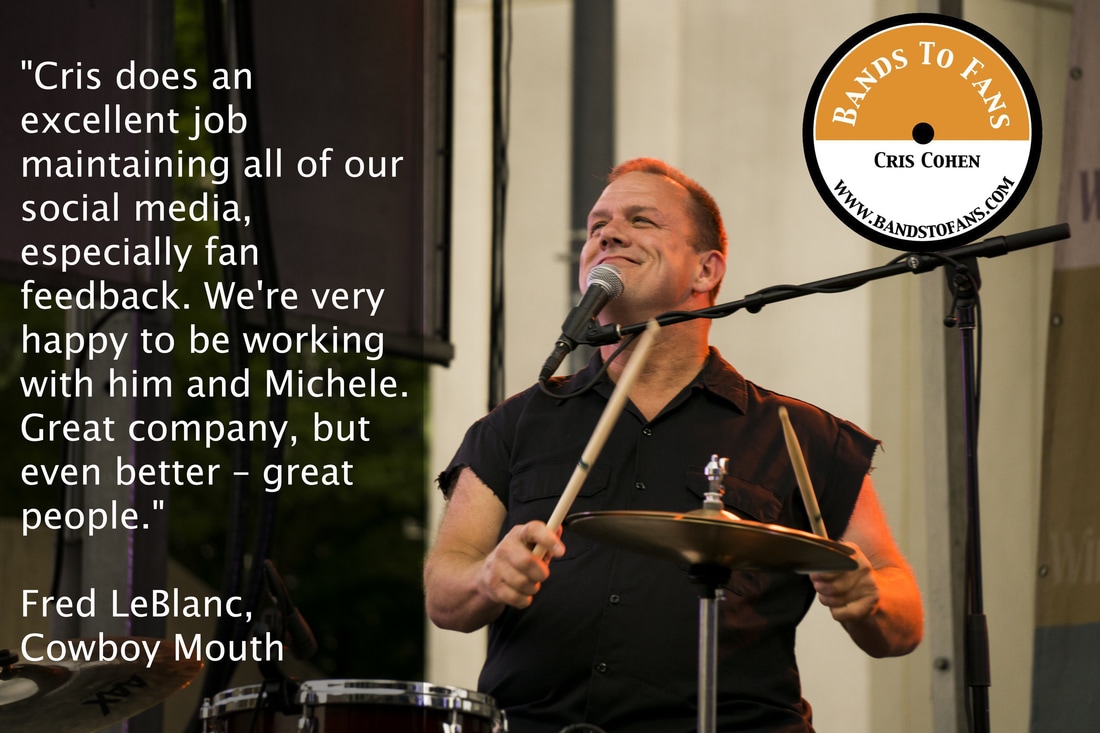|
Facebook is rolling out new page metrics (read the article). This is nice and interesting, but I question its value. I think a lot of people will become obsessed with this eye candy, but I don't think this will help you create better content.
What jumped out at me from this opinion piece in the New York Times ("The Real Threat of Artificial Intelligence") was the writer's ideas on the types of work that Artificial Intelligence can't and probably won't ever be able to do. These are "jobs involving creativity, planning and 'cross-domain' thinking" as well as "professions requiring nuanced human interaction".
To me, that describes the creation of social media content. But few people take that approach. Instead most people (and agencies, businesses, etc.) try to make it into a kind of drive-thru window experience, where identical products created in a factory setting are shoved at customers as fast as possible and with as little thought as possible. Despite the tech interface, to me the best social media content feels like one human being talking to another. There is a podcast I like called "The Unmistakable Creative." At the end of each interview, Srini, the host, asks the guest, "What do you think makes someone or something unmistakable?"
Personally, I think it is the unique spin on things each person brings to their work, their life, etc. In many ways, the key to being unmistakable is to be yourself. Of course, many people have trouble with that. I have trouble with that. There is that pull to imitate others, to mimic what has come before in an effort to assure success. And I think this is where many people go awry with social media. They ignore and hide what makes them unique. As Oscar Wilde advised, "Be yourself; everyone else is already taken." Regarding the article in the Washington Post "As Apple Music grows, it wants to pay labels less. Here’s why that is important", although it delves into the pros and cons of the deal for Apple, Spotify, and (to a lesser extent) the record labels, it does not talk about what it means for musicians. I think this is because, consciously or unconsciously, all parties look to minimize musicians. If they could have hit songs cranked out in a sweatshop, they would.
Music is treated as a commodity. And so are musicians. I think survival in today's world is dependent on NOT being seen as a commodity, NOT being seen as interchangeable with someone down the street who charges a fraction of what you do.  Cris Cohen: How would you describe the album "Midnight. Hallelujah."? Jonatha Brooke: This album is an interesting battle between light and dark. And strangely enough, I had the song “Midnight Hallelujah” for a few years. In fact, I joke about it in the “My Mother Has 4 Noses” show. I joke about playing my mom an early version of it and telling her, “Hey, Mom, I'm working on this new song called 'Midnight Hallelujah.'” And she was thoroughly demented already, but she looked up at me and without missing a beat she said, “Oh, Boolie, that sounds an awful lot like it's about sex.” She really got me. I'm like, “Oh my God, Mom, I guess it is. You're right.” And then she goes, “Well you are going to have to wait until a lot later than midnight for that!” Then she said, “Gotcha!” So it is kind of an interesting development that this has become the title of my next record. And that song is indeed about a certain battle between sacred and profane. It is literally kind of about sex, but it is also about battling the notions of what faith means and what adhering to faith means. You know, I certainly grappled with that in my mom play, but I think I'll always grapple with that. It's been part of my continuing dialogue and what I write about. There is probably some element of that in all of my records. This is no exception. And I think this one goes a little deeper, darker. There are some beautifully light, happy songs, but there are some really gnarly, snarling, grappling dark ones. Cris: Did those dark feeling come out as a kind of venting? Jonatha: Yeah, I think they do. I think I am venting a lot more anger than I have done in the past. And some of it is made up. As always. I just make shit up. I'm not all of the people in all of these songs. I'm not the voice of all of these protagonists. In a song like “Mean Looking Jesus” I'm this … I don't know who I am. It's just not necessarily me. I'm a bitch and I'm just going for it and that's really fun. It's a character. I put on a different persona and I go to Gothic Land. Cris: For the album title "Midnight. Hallelujah.", why the periods? Jonatha: I wanted them to be separate ideas, because if you lump them together “Midnight Hallelujah” could just be about sex. For the album, these are two totally different ideas. Midnight can be just a desperate time. So I guess I wanted to separate out those notions of midnight as a real soul-searching moment, when you are in the dark. You're all alone. You're questioning everything. And then hallelujah has its connections to faith and religion, but it also has its connection to joy and just plain, unbridled happiness. Cris: About the lyric "I'm a tongue-tied, black belt sinner and I'm running with the saints", how does one come up with a lyrics like that? Jonatha: One borrows from one's heroes. I think it was Mary Karr who called herself a black belt sinner. I was so smitten with that idea of being a black belt sinner. “I am so good at this, I am a black belt.” But I don't feel like I am that good. So I wanted to set myself in another category of being on the fence. I can't get my words out and I'm not quite certain that I am really good at sinning because I am still kind of hanging out in Goody-Goody Land. Cris: You draw from some intensely personal experiences when creating your songs. What does it feel like opening yourself up to people like that? Jonatha: I joke about this sometimes because it is often after the record is out that I realize how much I've said. And that I have completely bared very intimate details. Although, again, I do embellish and I lie a lot. But I do sort of wonder once in a while, “Wow. Have I said too much?” That's just what I do and who I am. I guess I can't help it. If I hold back or try to whitewash things or conceal, then it doesn't feel honest. It doesn't feel singable or relatable or truthful. I am the only one who knows my own version of things, my own truth. And so that's all you can do is be honest with that. And if you don't tell the truth, then you are just going to fester. Cris: How have you changed since the last album? Jonatha: I think that I am a little edgier. I think I am trying a few new things here. This record I think will probably sound less polished in a good way. I intended that. Just a little ballsier. I think the last album, because the songs related to the play, had this very beautiful poignancy and chamberish quality. And there were string arrangements and the songs were somewhat elliptical and sweet. And it was really an ode to my mother. This one is a little more topical. It's rockier. There's more electric guitars threading through. There's a real swagger to it. It kind of came out of that very intense period and I just kind of wanted to romp. I wanted to stomp around a little bit. Cris: Are you the same person you are onstage as you are offstage? Jonatha: I kind of am. I'm basically a golden retriever. I'm just so happy to be there, so happy you came. If you throw the ball for me, I will always bring it back. And I just want you to scratch my ears. And I think I am kind of that way in person. I love my job. I love singing. I love connecting with an audience. And I love that repartee where you are baring your soul in a way and people come to like and respect that you are up there really giving your everything. I think that I kind of do that in real life as well. And the singers and songwriters who I love the most have that same kind of vulnerability. They don't try to be cool or holier than thou with their audience. They address the audience as a friend. And I think that is a really appealing quality in a performer and I aspire to that too. I remember watching Al Jareau back in the early days. I would go to see him perform. He was just mesmerizing. He had this charisma that made every single person – even in an arena – feel like he was singing sweetly, directly, lovingly to them. And I just thought, “Wow. That is the most magical gift.” I hope someday I can attempt a quarter of that, to really make everyone in that room feel like they are part of something that is happening and I am having a real conversation with them. Although it can be exciting to see your numbers spike, it is best to take social media stats with a grain of salt. For instance, people get very excited when they post a video and see the reach numbers and total number of views.
However, as Facebook noted in a recent post on their business page, "when videos start to autoplay on Facebook, which happens about 70% of the time due to a user's settings, network and behavior, people watch them for 16.7 seconds on average. A similar story holds true for video ads, which are watched in News Feed for 5.7 seconds on average." When posting a link to an article, especially one where a client is interviewed, I find it is best to post an excerpt in the text box of the post. For one thing, it increases the likelihood that people will click over to read the article.
Just as important, though, this might be all that people read of the article. Most people who see the post will not want to leave the social media site to read the whole thing. There is a good chance they will at least read the excerpt though. |
Archives
June 2024
|



 RSS Feed
RSS Feed